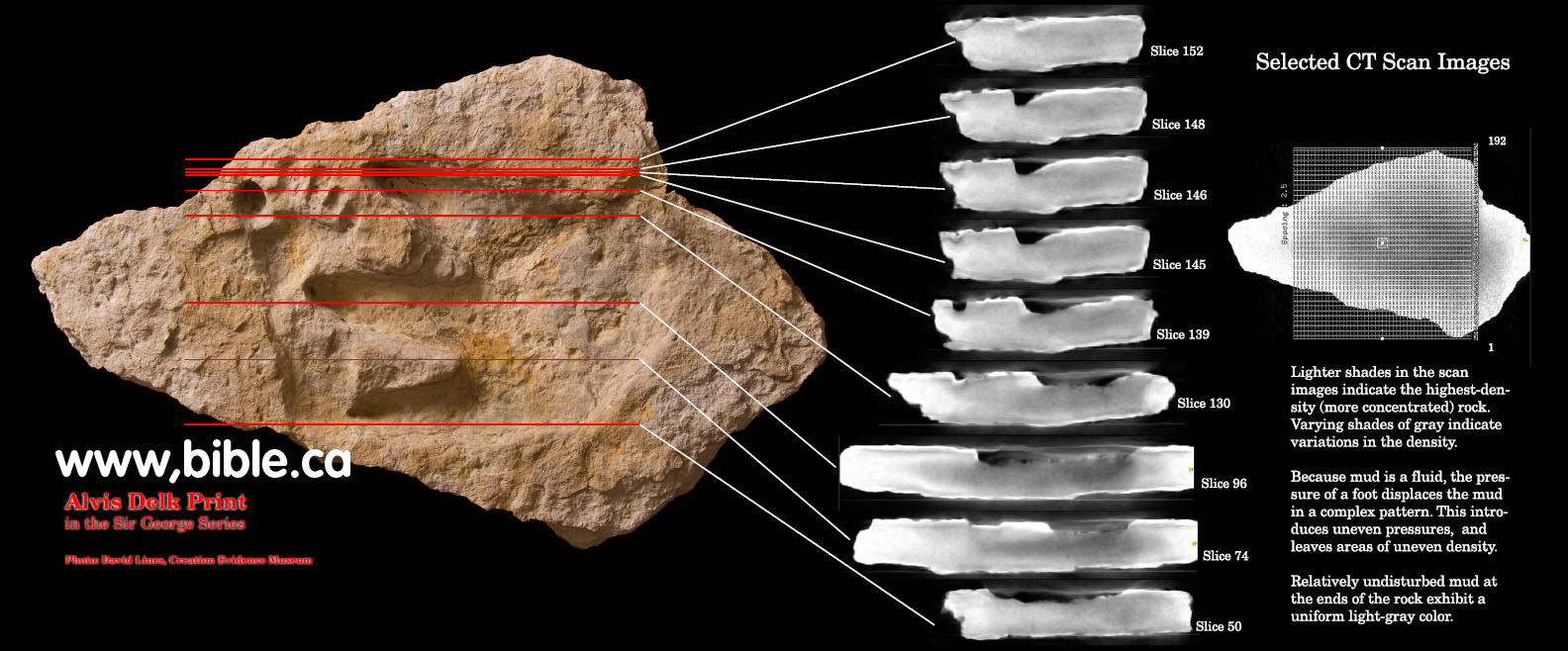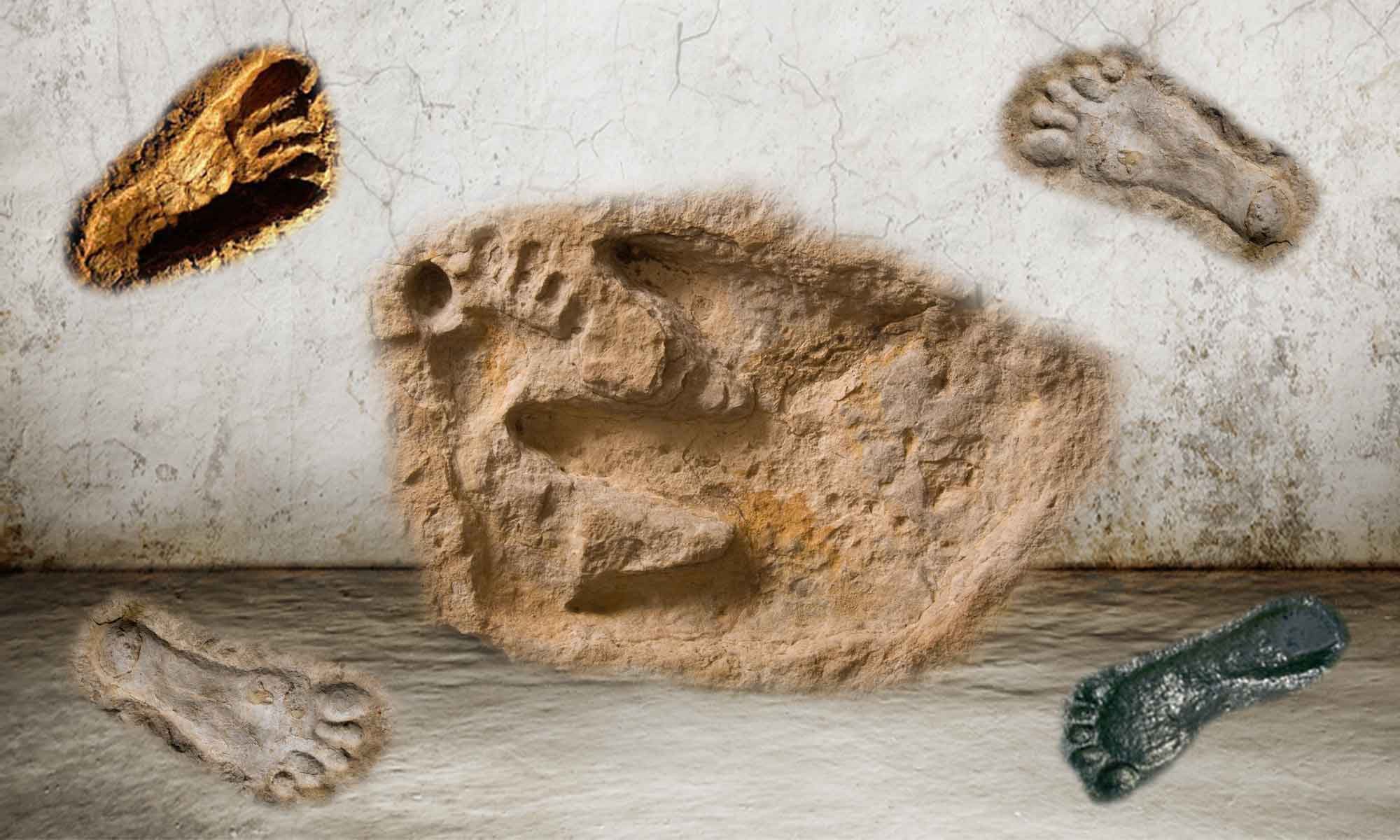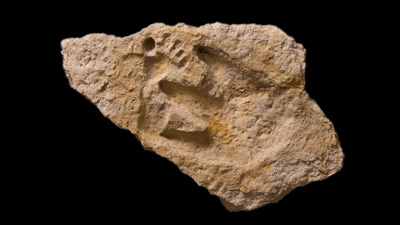
In the year 2000, 72 year old resident of Stephenville, TX and fossil hunter, Alvis Delk, was walking along a tributary of the Paluxy River when he came across a fairly large rock with a dinosaur footprint in it.
The rock was lodged between several other rocks and after about 45 minutes of work he was able to get the slab loose. He took it home and stored it with the rest of his other finds he had accumulated through the years.
In 2008, he was working on a ladder at his house when he fell and injured his back fairly severely. He needed money to pay off his medical debt and decided to sell the track. In preparation for selling the track, Mr. Delk began cleaning the dust and dirt off of the slab. In the process of cleaning up the rock, it revealed an amazing discovery.
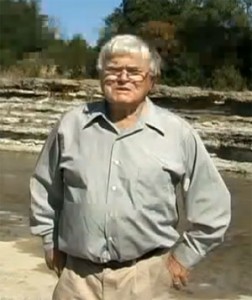
Within the tip of the dinosaur footprint was the outline and shape of a human foot. The caked mud around the dinosaur track and on the rock had hidden the human footprint since its original discovery in 2000.
The rock clearly displayed all five toes, instep, and heel partially penetrated by a three toed theropod type of dinosaur. Soon after the discovery of the human footprint, it was sold to the Creation Evidence Museum where it remains on display.
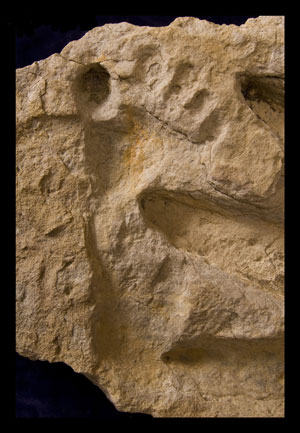
Multiple spiral CT scans have been performed on the Delk print to verify its authenticity, and over 800 X-ray images document density changes within the rock that correspond precisely with fossil footprints. Spiral CT scan technology provides an effective means of analyzing fossil footprints without physically destroying them. The CT scan allows visualization of the inside of the rock, specifically, under the footprint. These spiral CT scans prove that the Delk Print is a genuine fossil human footprint.
The amazing thing about this print is that it not only contains a human footprint, but also a dinosaur footprint. The dinosaur actually stepped into the human footprint. The human had stepped in the mud and the foot impression was made first. Then, while the mud was still soft and fresh, a dinosaur came along and stepped in the mud with its middle toe intruding on and into the human track. In the Delk print, you can actually see the displaced mud from the dinosaur’s middle toe inside the human footprint.
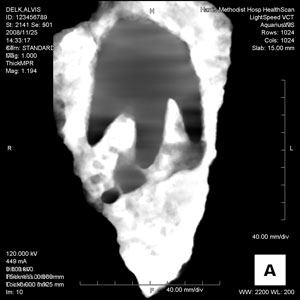
According to evolutionary theory, the dinosaur tracks at Glen Rose, TX were made at least 100 million years before humans were supposed to have evolved. Of course dinosaurs and humans cannot be stepping in each others footprint if they are millions of year apart. These footprints provide profound evidence refuting the evolutionary myth, and this is undeniable evidence that man and dinosaur existed together. Not only does this print disprove evolution, but it supports the Biblical model of creation which states that all things were created in the beginning just as set forth in Genesis Chapter 1 of the Bible.
